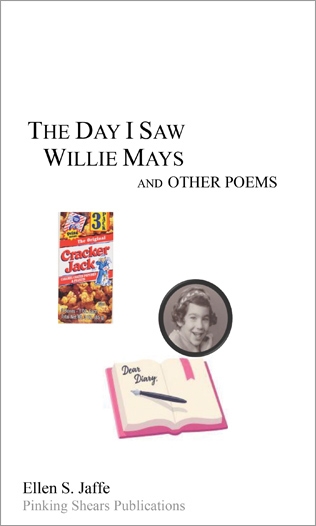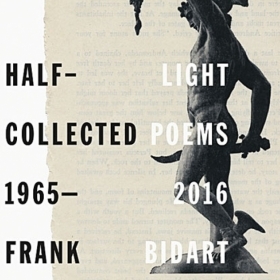Ellen Jaffe ’66 was born in New York City, studied in England, and moved to Canada in 1979, working part-time as a therapist and teaching writing workshops in schools and community programs. Since 1993, when she became a Canadian citizen, she has received grants for writing and arts education from the Ontario Arts Council and has published a young-adult novel and two acclaimed books of poems. She recently self-published her third collection, The Day I Saw Willie Mays and Other Poems.
How does this book differ from your first two collections?
After my second book, Skinny-Dipping With the Muse, was published in 2014 by Guernica Editions in Toronto, I continued writing about my family, my Jewish roots, and childhood memories. Then, in February 2019, I was diagnosed with cancer and began to write about my response to this illness; these poems took my writing to a new, urgent, “closer to the bone” place. I also completed a series of poems inspired by photographs by Karin Rosenthal ’67. I did not want the book to focus only on cancer, so I kept the working title (from a poem based on a childhood experience). That poem, like many in the book, plays with the tension between certainty and uncertainty/mystery.
As a poet, how do you approach uncertainty?
Life is uncertain, and it helps to realize that, rather than trying to find absolutes. For me, part of a writer’s job is to experience uncertainties and difficulties (personal and in the wider world) and then find words and images to write about them with empathy and precision. This can be surprising: In writing the cancer poems, for example, I often began in despair and anxiety and ended in a place of love and hope.
How did Wellesley influence you as a poet?
When I came to Wellesley in 1962, I knew that I wanted to write—but did not yet have a sense of “being a writer.” Wellesley (like other colleges) was on the cusp of becoming more political. As editor of the Wellesley News, I promoted that budding awareness with articles about U.S. politics, the Vietnam War, and related subjects. This writing sharpened my style and increased my knowledge. I also heard writers like Robert Frost, W.H. Auden, and Eudora Welty at Wellesley and in Boston. Freshman English with Naomi Diamond (1926–2010) turned out to be one of the best courses I took. Naomi taught me to read with greater perception and focused my writing with her clear, direct comments. I was fortunate to connect with her again in Toronto, over 20 years later.
A poet herself, Lund writes about poetry for the Washington Post and the Christian Science Monitor.
Visit Ellen Jaffe’s website at www.ellen-s-jaffe.com.







We ask that those who engage in Wellesley magazine's online community act with honesty, integrity, and respect. (Remember the honor code, alums?) We reserve the right to remove comments by impersonators or comments that are not civil and relevant to the subject at hand. By posting here, you are permitting Wellesley magazine to edit and republish your comment in all media. Please remember that all posts are public.